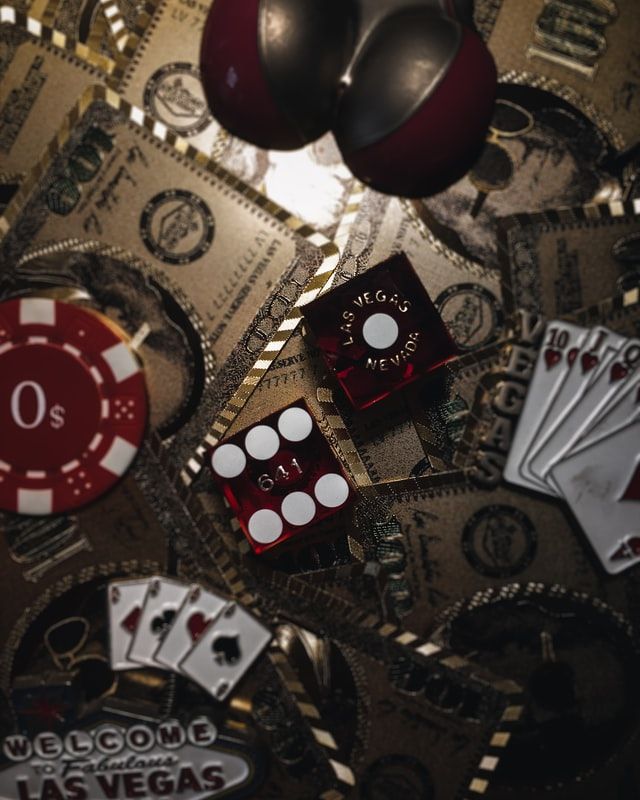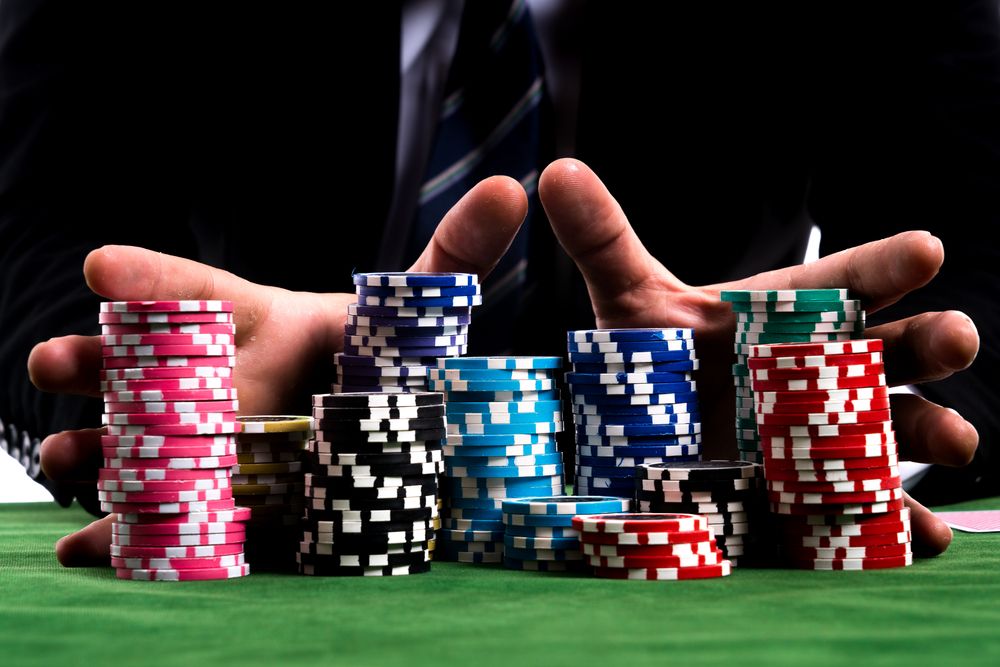Poker
How many poker players are profitable?
June 01, 2022
It appears that every poker player I talk to claims to be a big winner. It's pretty obvious that it's impossible for everyone to win, so I did some online research to find out what percentage of poker players make money. It was difficult to find definitive answers, so I analyzed my long-term online poker database and used the data to figure out the answer for myself.
So what percentage of poker players are profitable? Of a sample size of 609 players from my Hold'em Manager database who had played at least 10,000 hands, only about 30% were profitable after the rake. While 18% of players were big winners, 49% were moderate to significant losers. The remaining 33% of players fell into either the small winner or small loser category.
While the data doesn't necessarily surprise me, there are some interesting facts. Let's take a closer look at the details and see what we can find out.
What are the details of the study?

Poker sites from which the sample was obtained
The sample was obtained from games on the Winning Poker Network across two skins, America's Cardroom and Black Chip Poker. Stakes ranged from 10NL to 200NL with a mix of No Limit Hold'em and Pot Limit Omaha.
What is the exact percentage breakdown of winners and losers?
| PLAYER GRP | # OF PLAYER | PLAYER POOL% | WIN RATE RANGE |
| Crushers | 30 | 5% | > 10bb/100 |
| Big Winners | 82 | 13% | 3bb to 10bb/100 |
| Small Winners | 73 | 12% | Obb to 3bb/100 |
| Small Losers | 126 | 21% | 0bb to -3bb/100 |
| Moderates Losers | 156 | 26% | -3bb to -10bb/100 |
| Donators | 142 | 23% | < -10bb/100 |
What is the biggest win or loss of a player?
The biggest winner won "$7,840", while the biggest loser "lost $15,151". Obviously, it is much easier to lose than to win. Only 18% of the players had a winning percentage, which is considered the standard for a good winning percentage.
Discover Why is Slow Rolling so Bad?
What percentage of players are profitable in the long run?
The exact percentage of long-term winners in poker is unknown. However, taking into account the rake and the fact that variance can cause players to quit during a losing streak, the actual number of players who are profitable over their lifetime is almost certainly very small; probably around 15% or even less.
If you think about it logically, losers are much more likely to quit playing poker and thus make up a much larger percentage of players in an active sample, because if someone wins, he or she is much more likely to play a larger sample over a lifetime.
In other words, if I were to repeat this sample on the same site in two years, a much higher percentage of winners would still be playing, while a large percentage of losers would disappear. It's just inevitable that the losers will eventually go broke and stop reloading unless they improve and start winning.
What is considered long term?
In poker, "long term" is one of those terms that is completely subjective. Nevertheless, it boils down to the number of hands played where you can be sure that you are either definitely a winner or a loser.
Long term for live players
For live players who, if they're lucky, play about 30,000 hands a year, the long-term view starts to kick in at about 100,000 hands. However, since they only play at one table and usually on very soft games, you can expect the average win rate of live players to be higher than that of the average online player.
The long term for online players
I would argue that for online players who play at multiple tables, the long-term win rate is reached at around 250,000 hands. Due to short-term variance, our "actual" win rate may be off by a big blind or three for a sample of this size, but the general trend should be clear.
Find out What is the biggest poker tournament in the world?
Does the softness of the player pool affect the percentages?
The overall "softness" of a player pool can affect the odds a bit, as with less parody the money flows up much faster. Therefore, there could be more breakers and big losers.
However, this is a hypothesis that I can't test since the soft poker sites I play at are anonymous or semi-anonymous.
How does rakeback affect these percentages?
Assuming all players in the player pool use rakeback, the overall ratio of winners to losers would change. This is because many small losers now become break-even and many break-even players become small winners.
How much does rakeback improve the overall win rate?
As far as I can tell, the 27% rakeback on the Winning Poker Network will improve a player's win rate by about 1.5bb/100. I estimate that this means a 5% shift in the ratio in favor of the winning side. So about 35% of players as winners and 65% as losers, instead of 30% and 70% respectively.
| PLAYER GRP | # OF PLAYERS | PLAYER POOL% | WIN RATE RANGE |
| Crushers | 51 - [30] | 8% [+3%] | > 10bb/100 |
| Big Winners | 79 - [82] | 13% [+0%] | 3bb to 10bb/100 |
| Small Winners | 87 - [73] | 14% [+3%] | Obb to 3bb/100 |
| Small Losers | 133 - [126] | 22% [+1%] | 0bb to -3bb/100 |
| Moderates Losers | 153 - [156] | 25% [-1%] | -3bb to -10bb/100 |
| Donators | 106 - [142] | 17% [-6%] | < -10bb/100 |
Basically, 21-39 people in each category were promoted up in my semi-arbitrary classification system. However, only 32 out of 609 people changed from loser to winner status.
This is not exactly a gigantic change. It is worth noting, however, that environments with reward systems are likely to have more winners than not.
I would point out, however, that sites with robust reward systems tend to have a higher concentration of serious players who want to take advantage of those rewards. This factor potentially negates the benefit of a rakeback system and causes the overall player pool to suffer. Unfortunately, this is an argument best saved for another day.
What makes one player more profitable than another?

The factors that contribute to making a player profitable are literally the million dollar question. While the answer seems simple (become a good player), there is more to it than that. To determine exactly what makes one player more profitable than another could be the subject of entire books. I wrote an article on this topic called How Professional Poker Players Make Money, if you'd like to read it.
Here's the short version of the 3 keys to maximizing profits:
- Play against adversaries who are worse than you are
- Table selection
- Tilt management
Other questions
How many professional poker players are there?
There is very little data on exactly how many poker players there are, let alone how many of them are professionals. However, these statistics site suggests that there are just over 20 million real online poker players worldwide. While we can't know how many of them are pros, we can use the data collected in this article to make a guess about how many of them play well enough to earn a living. The database indicate that about 18% of players are big winners. 20 million times 18% = 3,600,000.
Is poker still profitable in 2022?
To make money playing poker, you need to find players who play worse than you, first and foremost. So by choosing a good poker site and tables, anyone with a reasonably good strategy can win.
What is variance?
Variance can be either positive or negative. Basically, it means that during a certain number of hands you played, you either made more or less money than expected based on your perceived win rate.
Must-see items
Latest Articles
Check out the latest articles from HyCasino below. You can find different topics such as slots, poker, blackjack, crypto and NFT.
Everything about the casino is at your fingertips. All you have to do is read our posts.

The creator of this project is not just another writer but he is, first and foremost, a passionate online gaming player. His attention to detail means he spends hours studying and trying out innovative new techniques in order to write content that is engaging and truly informative for the users of this blog. When he's not writing, you can find him in Macau and Las Vegas, with sunglasses and the ever-present cigar.
Responsible play: The player is responsible for the amount he is able to play. Don't gamble for money you can't afford to lose. Don't think of gambling as a way to make money. We recommend that you do not play when you are in a bad mood. Players are required to check the gambling laws in their country or jurisdiction before playing for money at any online gaming site. If you need help or support, visit www.begambleaware.org or 0808 8020 133 (EN).
PLEASE NOTE: The offers on our site are liable to change or to be canceled. We always recommend the player to review the conditions and verify the bonus directly on the casino / betting companies website.
© HyCasino - All rights reserved





